Lance encounters: Why do people risk death jousting?
- Published
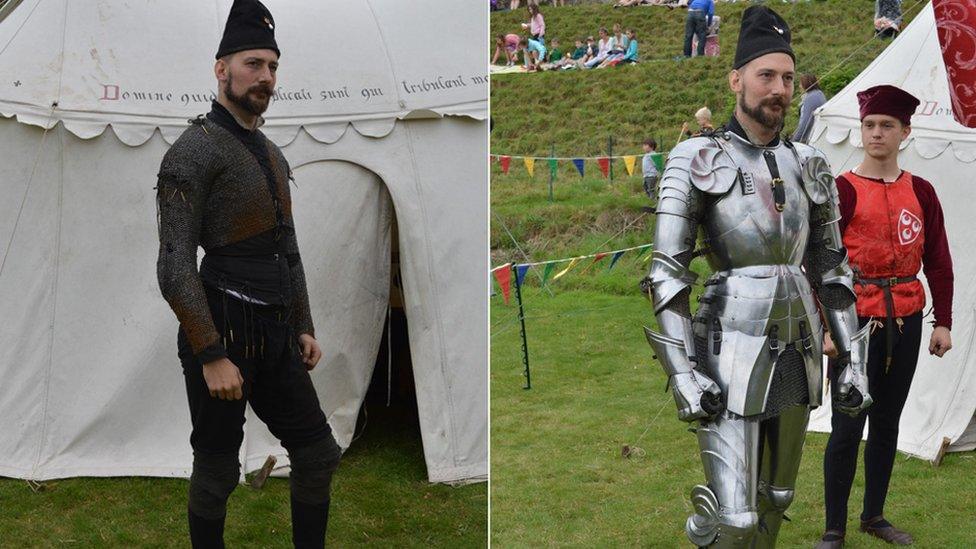
Arne Koets said his build was typical of knights in medieval times as they would have been slim, if a bit shorter than Arne
As England's only amateur jousting league gets under way, more and more people are spending their weekends clad in armour brandishing a 4m-long weapon. They risk broken bones, bruises and even concussion - so what is the appeal of the brutal ancient sport?
"I have broken my wrist 15 times, I have had splinters in my eye, broken ribs, concussion. I have been thrown off the horse a few times."
Arne Koets, 34, from the Netherlands, gets ready for another joust at Carisbrooke Castle on the Isle of Wight for an English Heritage event.
He says things improved when he got better armour but the injuries "don't bother him".
"It has become sort of expected, it is part of who you are expected to be."
Mr Koets' competitor, Joram Van Essen, a 40-year-old primary teacher from New Zealand, says he is so focused on the show, personal safety "doesn't worry me".
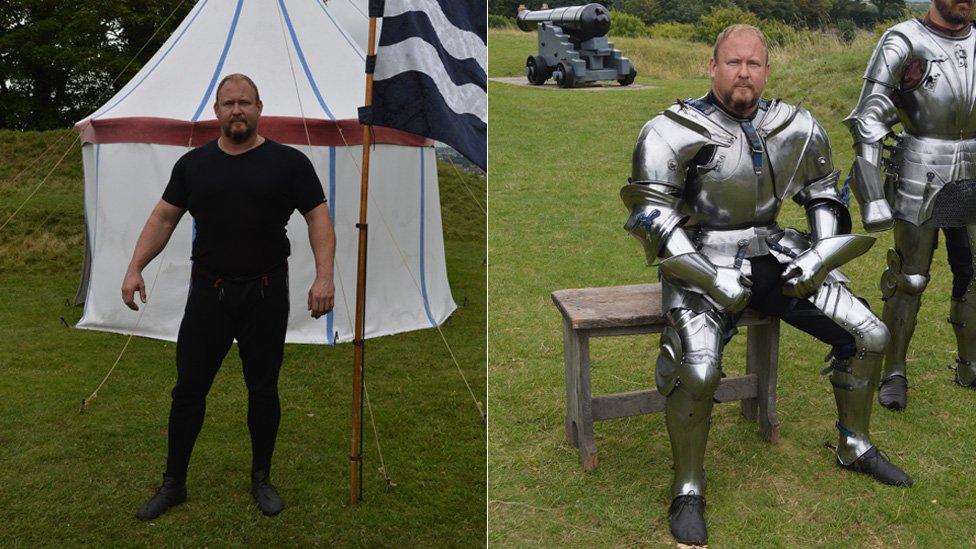
Joram Van Essen trained as a primary school teacher but does jousting part-time
Listing his many injuries, he said: "My jaw dislocated, I got hit in the head and I wasn't wearing as good a helmet as I should have.
"I have had concussion as well, had my hand cut open, those are the worst ones."
Overheating in his armour was more of a worry than injuries, he said.
"If it is it really hot you have big problems with heat stroke, most of us have had very close calls with heat stroke, it is up to 40 degrees."
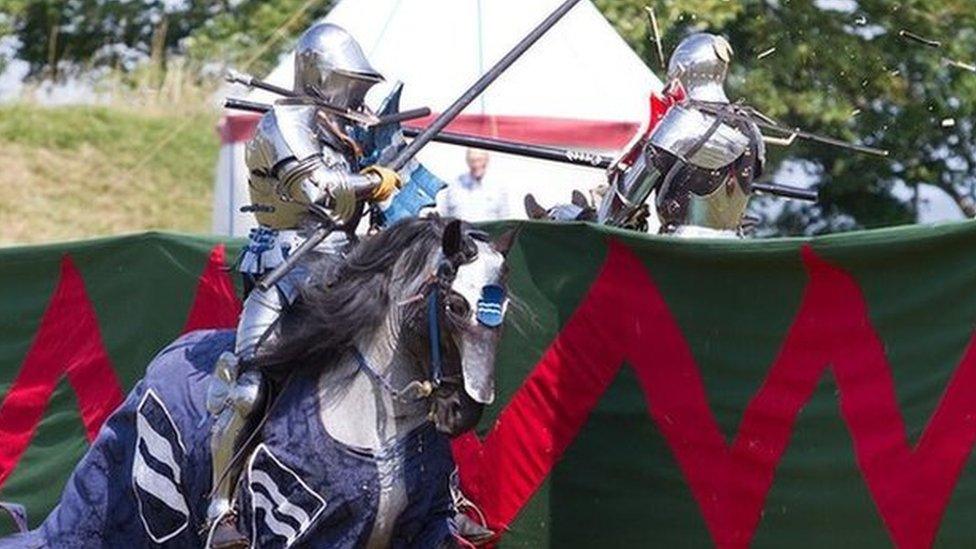
Arne Koets and Joram Van Essen clash at Carisbrooke Castle on the Isle of Wight
He said participating in one show could have the same impact on the body as an 80-minute game of rugby.
At these events, knights score the most points for hitting the other on the head.
It is not a sport for the faint of heart.
The Knights of Middle England, based in Warwick, runs the annual Amateur Jousting League tournament. It attracts up to 15 competitors and has been going since 2010.
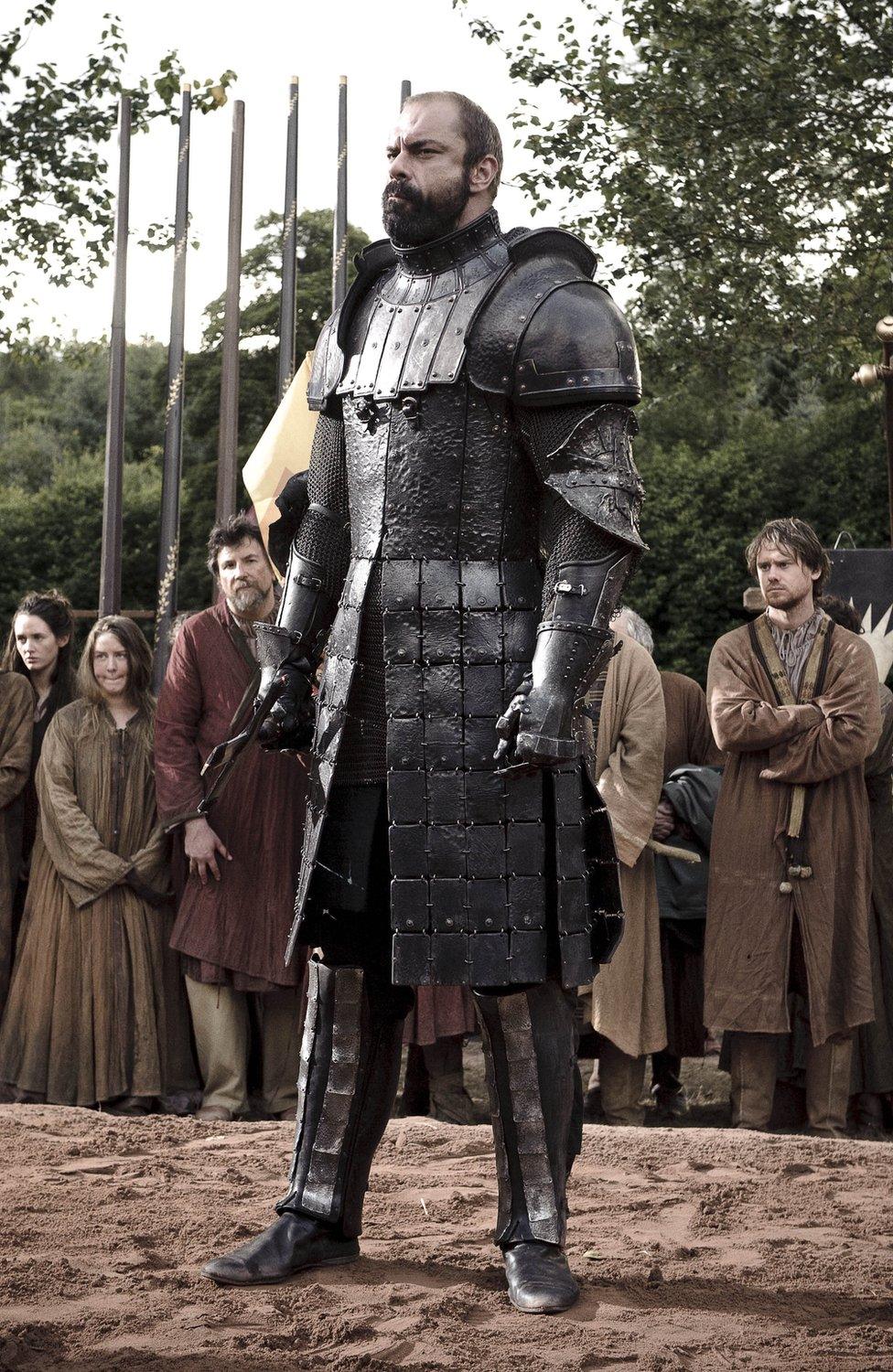
Gregor Clegane, played by Conan Stevens in the first series of Game of Thrones, competed in a gruesome jousting tournament
Lucy Godsave, 34, from Hertfordshire, or Lady Godsave of Welwyn as she is known for the tournament, took up jousting two years ago.
The HR worker, who has lessons with the Knights of Middle England, said: "Some of my friends think I am mad. It is an extraordinary hobby to have.
"I tried it on an experience day which I got as a present and I was hooked.
"It is really amazing and something totally different. The trainers are fantastic and make sure it is all very safe."
Unlike in other events the amateurs go up against an instructor to score points in the tournament, rather than each other.
The company also offers action-packed, choreographed shows, as opposed to the historically accurate re-enactments put on by English Heritage.
'Adrenaline rush'
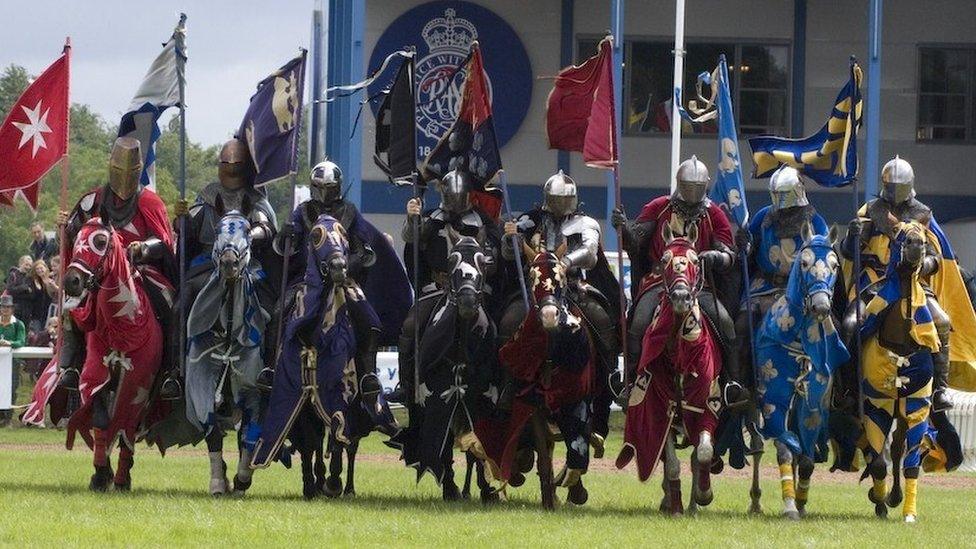
Knights of Middle England runs an amateur jousting league and puts on fast-paced medieval-themed displays
Kelly Baddeley, who works for the company near Warwick Castle, has not had as many serious injuries and said she was drawn in by the "addictive" danger of jousting.
The 26-year-old, who is one of a handful of women in the country who take part in the sport, said: "It is definitely a massive adrenaline rush, there is no doubt about that.
"There is danger with what we do. It is sort of addictive.
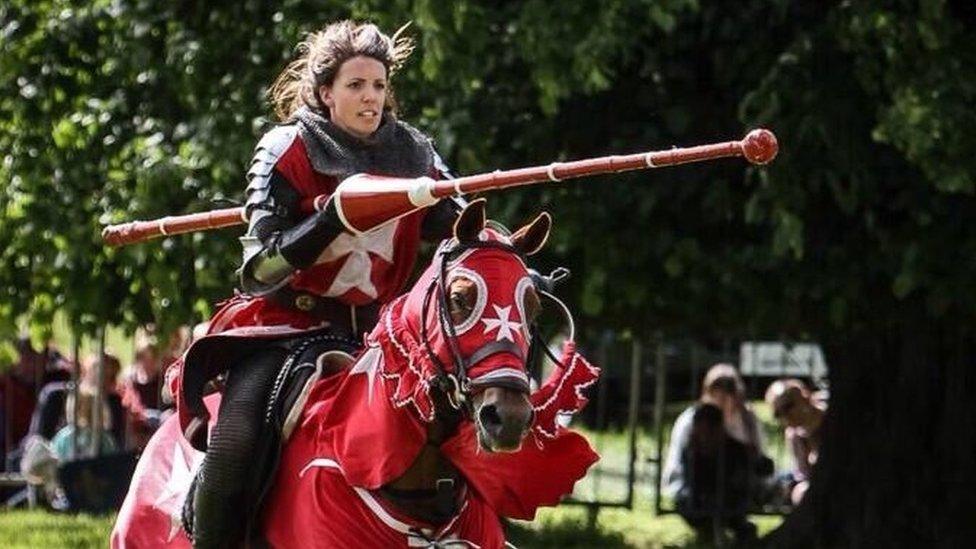
Kelly Baddeley goes up against men in choreographed jousting competitions
She said: "When you are sat waiting there is an anticipation, it is so high adrenaline to set off galloping down the tilt. There is a lot of physical hard work to get the lance couched under your arm.
"That's the hard work, when you get into that it is a massive feeling of achievement. [When]you have done that and [think] 'I did it', you can relax a bit."
Jeremy Richardson, 59, of the Knights of Royal England based in Kent near Hever Castle, has been jousting for 40 years.
He described the historically accurate shows as "boring".
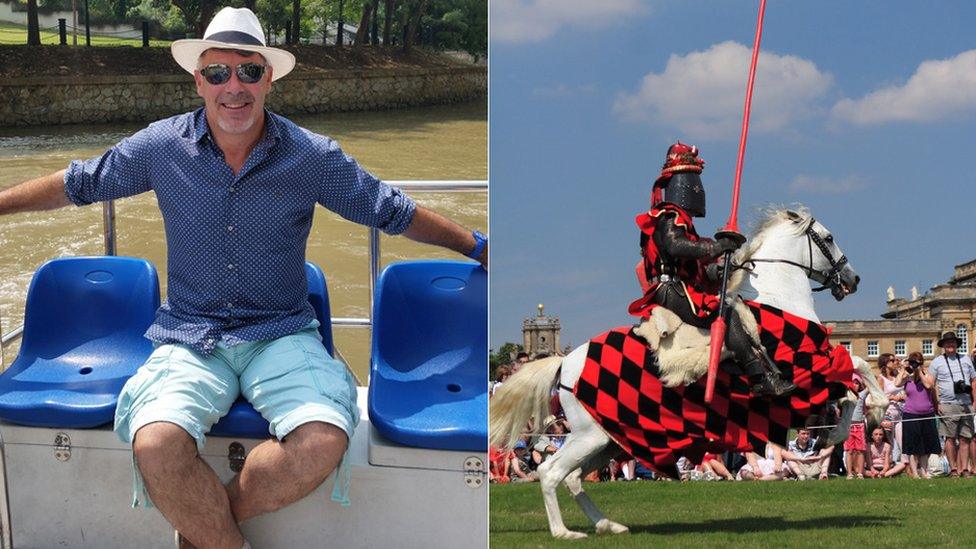
Jeremy Richardson has a day job organising events for a large company but in his free time puts on jousting displays
Mr Richardson jousts in his spare time and has broken his shoulder in five places, punctured his lungs, broken ribs, wrists, his collarbone and ankle and fractured many fingers.
He said: "Everyone who takes part gets butterflies in their stomach, you are the only one controlling a very fast and fiery horse.
"It is not as competitive as football but then again you are not going to die playing football.
"We are laying our lives on the line in front of each other."
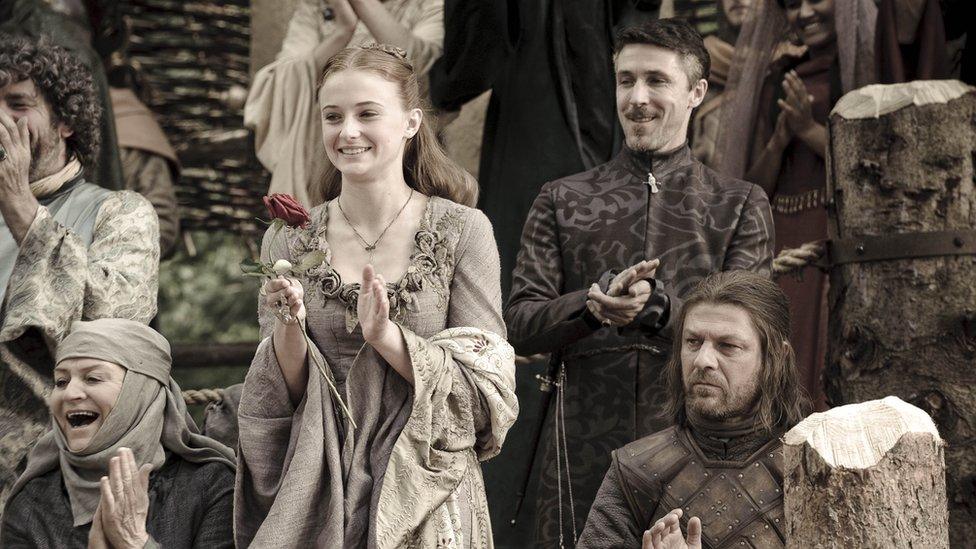
Sansa Stark, played by Sophie Turner, watches a jousting tournament in the first series of Game of Thrones
Despite the dangers he said it was uncommon for modern-day knights to die while jousting.
In September 2007 Paul Allen, 54, died during filming for Channel 4's Time Team after a splinter penetrated his eye socket and lodged in his brain.
Mr Allen, of Heyden in Cambridgeshire, had not jousted before.
The horses, which are highly-trained and usually Spanish stallions, travel at roughly 30mph.
The Knights of Middle England discovered, external being hit on the shield by a solid pine wood lance had the equivalent force of being hit by a car at 70mph.
In competitions a solid lance is normally used, but in choreographed events and historical shows knights use a lance with a balsa wood end, which shatters for dramatic effect.
Dominic Sewell, a self-confessed history "nerd", organises the English Heritage events.
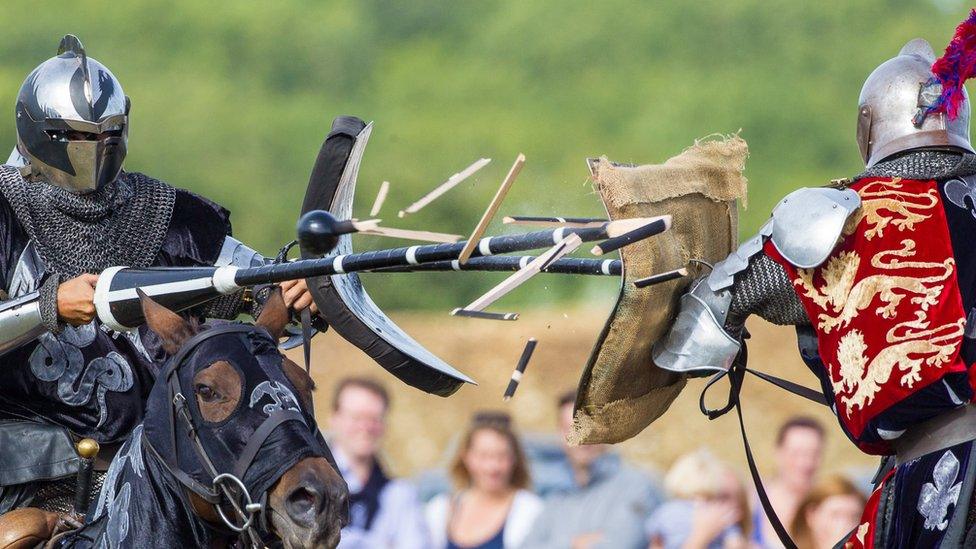
In shows for the public a lance with a balsa wood end is used as it shatters with dramatic effect, but lances made of solid pine are used in competitions
He is based in Northamptonshire, where he keeps 10 horses.
As well as being drawn in by the history side of the sport he said: "It's a lifestyle, it's an addiction, a drive, a passion, it is all-consuming and it is all day from the moment I wake up in the morning."
"Secretly all men want to have a go and all women want to see their husband do it."
He describes the rise in popularity of the sport as a "worldwide phenomenon" with interest from as far afield as Russia and Australia.
While jousting was an "elitist" sport in medieval times, players today who take part in polo - a sport popular with princes and the aristocracy - make great knights.
But the sport is increasingly opening up to men and women who do not own their own castles or titles.
- Published14 June 2015
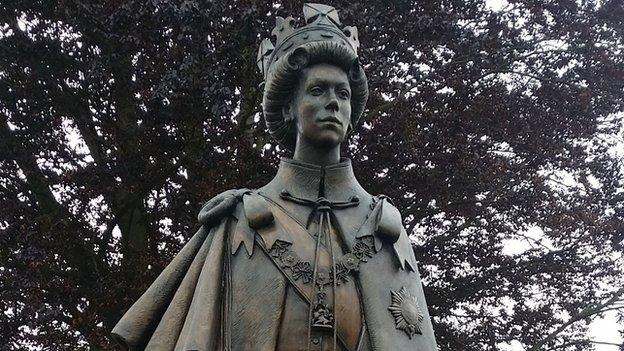
- Published16 August 2014
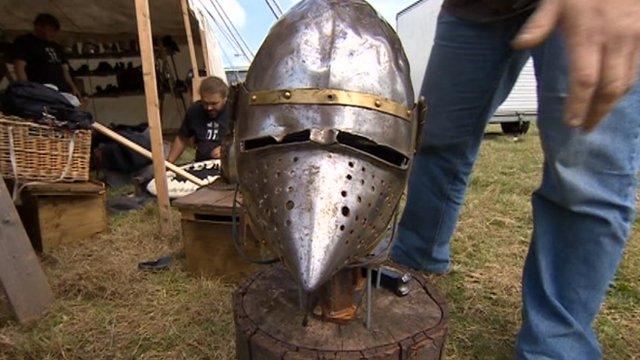
- Published24 June 2014
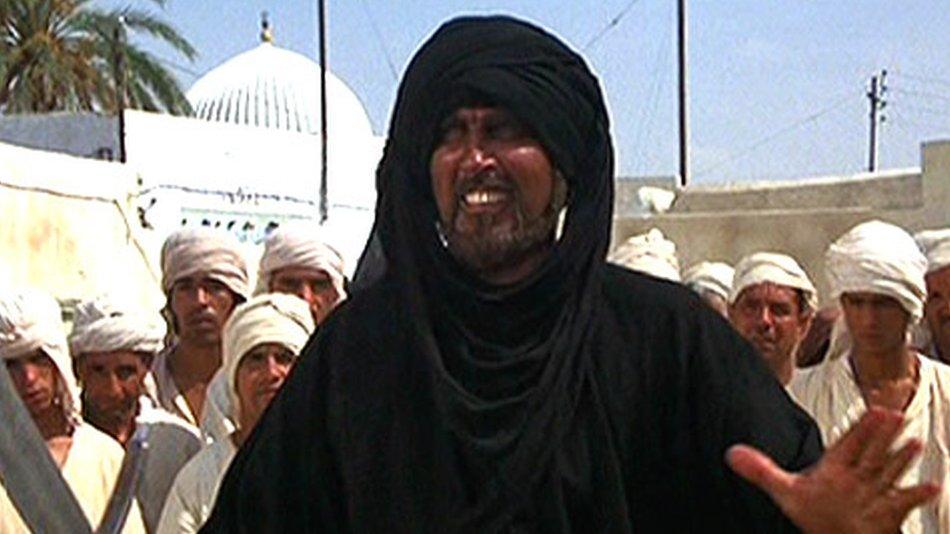
- Published27 January 2011